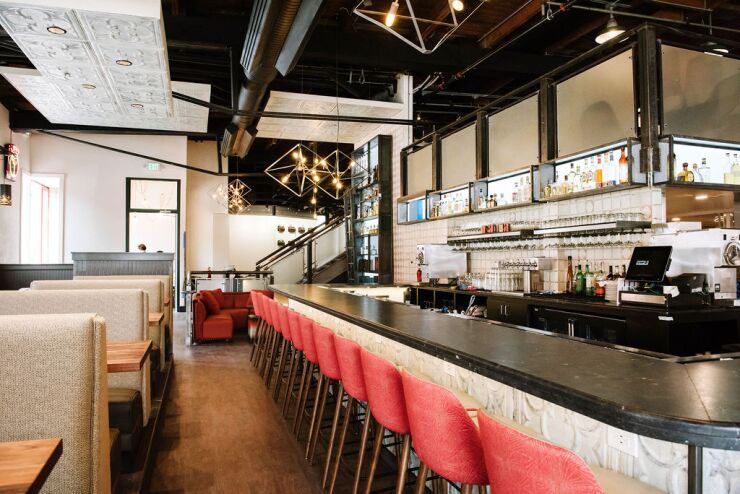Payments innovation is happening in small businesses like Rio Grande Mexican Restaurant, which has to manage a shift in how people shop, order, pay and communicate — all at the same time.
Here, the cutting edge doesn’t matter as much as adjusting to a rapid decline in cash use. While Starbucks and Rio Grande have decidedly different business models, what people are able to do with a mobile app at Starbucks influences what they want from other restaurants.
“We don’t want to make it hard for people to pay you, that’s the mentality,” said Josh Fay general manager of Rio Grande Mexican Restaurant, which has five locations in Colorado, mostly in the Denver area.

The restaurant is in the early stages of several deployments that may sound relatively old to fintech developers, but are part of the 30-year-old restaurant’s quest to adapt to how its best customers are paying at other businesses.
“Our servers are still taking orders with a pen and paper and putting that into a point of sale,” Fay said. “But we’re looking at table side ordering and mobile. We want to versatile. The business is going toward cashless, but we’re not there yet.”
Rio Grande has added a digital loyalty program, and is planning to install technology form TableSafe to enable bill splitting at the point of sale. It’s also planning to add NFC technology to support mobile wallets. Fay hopes this will make it easier for patrons to split checks.
“For a restaurant, it’s hard to have five people who want to pay with five credit cards,” Fay said. “It can take a server off the floor for a while because it’s operationally difficult.”
Consumers use the loyalty program, called MargMob, by signing up online and adding points to an account. The points can be redeemed for a party at the restaurant, meals, drinks, or in some cases trips.
It’s a sign of the influence mobile technology is having on the restaurant industry, even for establishments with different formats.
“There are other players in the market that are offering something that gives the sense that the people are getting something for their loyalty. So we wanted to build that in for our regular customers,” Fay said.
As part of the upgrade, Rio Grande is using a subscription service from NCR called Aloha Essentials, which includes integration with third-party delivery services, mobile point of sale, cloud-based menu updates and APIs that are designed to enable faster upgrades.
The service is new for NCR, and is part of that company’s own move to compete with fintechs that are making broader moves into restaurants. Square recently sold food delivery app
NCR recently acquired
Essentials is part of that trend, adding an easier hookup to a range of services tied to NCR’s existing Aloha brand, such as payments, merchant products, and digital connections to delivery apps and gig economy services.
“With Aloha Essentials we want to provide the stuff a restaurant would need to open its doors,” said Brian Dugan, a senior vice president and general manager at NCR.





